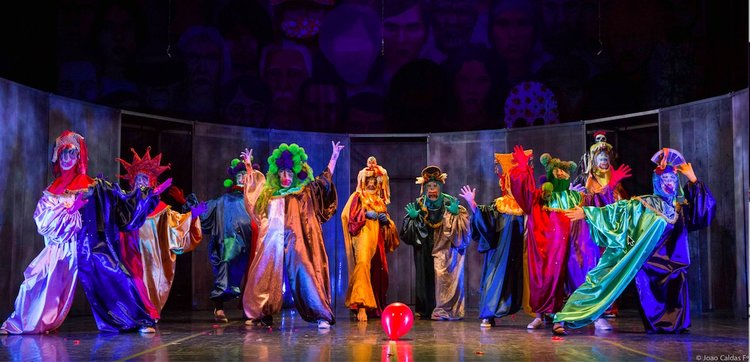Performance Shakespeare 2016
Post by Sonia Massai, Professor of Shakespeare Studies.
Performance Shakespeare 2016 is a digital archive that gathers information and visuals related to about 400 worldwide performances of Shakespeare in the anniversary year.
The digital archive is arranged and searchable by play and area. This design reflects our objectives for the project: inclusivity, accessibility and informed by grass-root participation. The goal was never to be fully comprehensive, authoritative or to collect ‘the best’ of Shakespeare in performance in the anniversary year.

We sought out contributions from scholars, theatre companies and interested audiences worldwide and have been thrilled by the diversity, scope and quality of the productions that we have archived here. This grass-root approach has meant that we have had contributions from a range of styles, theatres and traditions, from street performance to national stages. This approach has also allowed us to expand beyond academic imperatives and current discourses around “global Shakespeare”, because the archive has created a platform for contributors to decide what productions they saw and found interesting. We have not imposed a value of what is worth remembering but have left that question open for future generations of scholars and students.
Each entry in the archive includes a brief description in English, but we have encouraged contributors to include materials in the production’s own language(s) to ensure usability for their local performance, academic and student communities.
The archive is and will continue to be an open access resource. It will be archived by the Shakespeare400 Consortium until 2022 and in perpetuity by the Folger Shakespeare Library.
Project leaders Susan Bennett (University of Calgary, Canada) and Sonia Massai (King’s College London) are grateful to the Web Director, Jess Nicol, to their Research Assistants, Benjamin Blythe, Rowena Hawkins, Shana Krisiloff, and Aimee Morris and to all the academics and theatre professionals who have helped us build the digital platform. Shakespeare 400, a consortium of cultural and creative partners led by King’s College London, and the Social Sciences and Humanities Research Council of Canada sponsored this project.

